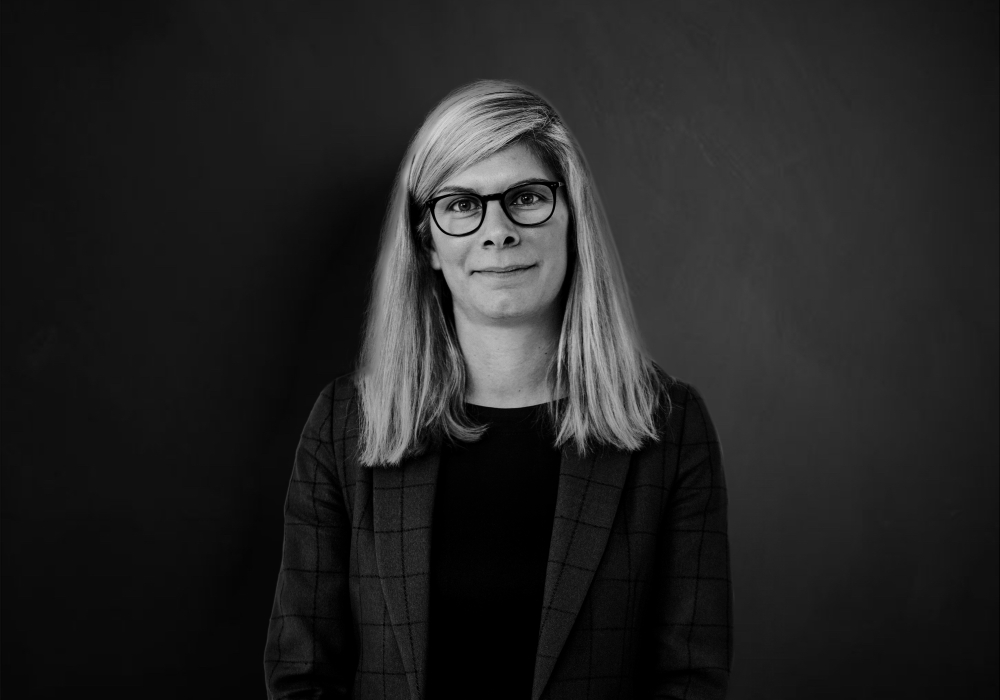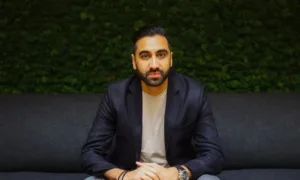To mark International Women’s Day (IWD) and our Digital Women Lunch 2023, we’ve been speaking to some of the industry’s leading female voices to get their thoughts on how digital can truly achieve equity. Today, we sit down with Angela Tangas, CEO, dentsu UK&I.
The theme of IWD 2023 is equity. How far has our industry come in achieving equity for women rather than just equality?
We’ve come a long way, but it is clear there’s still a lot to be done. As an industry, we still see women underrepresented in leadership roles, particularly in tech, despite it being well documented that companies with more female representation at the top outperform those with fewer women. Whilst great progress is being made towards achieving equality for women – the IPA’s latest agency census shows females make up 55% of total employees – we still don’t see that reflected across every level of business, which means that we’re failing to drive true equity. We need to remember success is not through actions, it is through outcomes.
One has to ask the question, even with a rise in the number of women in influential roles, was the pathway an equal one?
Similarly, here in the UK, a third of all start-ups are female founded, and whilst the amount of capital raised by women has almost doubled in the last 10 years, very little is actually being realised. In fact, the Rose Review estimated that the UK economy is missing out on £250 billion of new value every single year because of the barriers women face. So while there’s opportunity, we’re not following through on outcomes.
As a mother of a five-year-old, I know what happens at home can have a significant impact on how well we’re able to carry out our professional role so prioritising supporting women through every life stage is critical to enabling more women to rise to the top. Not only because it’s the right thing to do, but it also makes good business sense.
There’s no one size fits all solution but embedding a flexible working culture and providing dedicated inclusive policies are fundamental. A lack of these are among the top reasons for women changing companies – if not for leaving work altogether.
The Office of National Statistics reported a sustained year on year increase in women leaving the workforce in the UK last year due to caring commitments. On top of this, more brilliantly talented women leave our industry when they transition through the menopause, taking years of knowledge and expertise with them. Not only does this have an immediate impact, but also a long-term impact on the next generation of cross industry leadership.
As leaders at dentsu, our role is to make it a lot easier for our people to achieve better work-life integration. A feeling of trust, respect and ultimately support, is key to improving growth and retention as women progress through their careers with us and I’m really proud of the structures we have put in place to support this as we drive for real equity. We offer all roles on a flexible basis, have implemented unconscious bias training into our recruitment practices to ensure a balanced representation of candidates and offer a range of policies designed to provide support in the face of situations like becoming a parent, caring emergencies, pregnancy loss, the birth of a premature baby and menopause. We also have specifically tailored mentoring and development programs for women in partnership with Duke University across our business globally. Whilst we’re moving in the right direction, there’s always more work to be done and you can be sure that I’m pushing my teams to be accountable for true outcomes in our ambition to be the employer of choice in our industry.
What three things could employer companies do to make the digital industry better for women?
Firstly, foster a culture of allyship where everyone, regardless of race, ethnicity or gender, feels able to support and call out what’s not right, no matter where they sit in their organisation. People should ask themselves, are they creating the same opportunities for women and giving them a fair shot? A staggering 76% in a recent Women in Tech UK study said that they have experienced gender bias or discrimination in the workplace – an increase of 24% from their previous survey in 2019. This suggests that at a time when more women are securing jobs in tech, they are being treated even worse. We simply cannot stand back and hope that making a big noise on one day of the year is going to be enough to significantly impact that figure. Implementing training programmes that address this head-on, like interview bias training and confidential reporting services are essential. Men and non-binary members of our community need to feel that they are empowered and able to lean into these discussions – we can only make more progress when done so collectively. Achieving equity for all means it cannot just be a female conversation.
More positive female role models in leadership, inspiring the next generation of talent in my view is critical. This has to be driven by more equitable and inclusive policies, as well as flexible working options. I strongly believe in creating an environment where it’s ok to be vulnerable and that female leaders have a significant role to play in giving other women confidence in what they can achieve through open, honest and safe forums. I’m really pleased with what we are doing on this front through our Women in Tech platform which forms part of our broader gender equality network across dentsu in the UK.
Finally, and a big one for me, grow early careers activity and opportunities. We have entered a new era of talent competition and as we saw last year, demand for tech-based talent is up to 65% above the industry norm. We all need to be more innovative in how we attract, grow and retain people through dedicated careers initiatives. Today’s skills will not be the same as tomorrow’s so starting earlier in cultivating women in the digital industry is critical. One of the ways we’re doing this is through our flagship schools and early careers programme, The Code, which is accessible to young people across the UK, creating meaningful opportunities for the next generation whilst diversifying the talent pipeline for the industry. The programme works hand in hand with our social mobility initiative Access All Areas, which focusses on opening doors to people from all backgrounds and accelerating the careers of diverse young talent.
What is your advice to anyone in a junior position who wants to engender change within their own organisation?
Don’t accept the status quo if the status quo isn’t right. Back yourself and be curious. As Amelia Earhart once said – “Use your fear – it can take you to a place where you store courage”. Be open minded. Ask lots of questions, an inclusive culture should fuel this!
What is the biggest opportunity for women in your sector of the digital industry today?
Advancing their understanding of new technologies. For example, women already spend more time in the early iterations of the metaverse and are 90% more likely to spearhead initiatives in the new and developing next generation of the internet. This will no doubt have significant follow-on benefits for attracting and retaining the next generation of all gender talent.
What is the biggest misconception about women and by women in the digital industry?
Almost everything in our lives today is fuelled by tech. Being in the digital industry doesn’t mean everyone needs to code or have a Bachelor’s in Science. It also doesn’t mean that you need to be young to understand the digital landscape, yet there is an age bias that still exists.
Women over 50 are greatly underrepresented in our industry yet research shows that this community’s desire to work and progress in their careers is at odds with most companies’ perceptions of them. So not only are we missing out on a huge pool of talent but also the opportunity to help clients engage even more authentically with a valuable demographic that controls around 60% of UK household income.
Lastly, there’s still the perception that women don’t support each other and that’s simply not true. Since my arrival into the UK last summer women in and outside of the industry have been positively welcoming, it’s been amazing. Why? Because we all recognise that we grow together. It’s about investing the time in relationships and networking – now more than ever post pandemic. Fortunately, here in the UK there are a number of fantastic networking circles for women.
What will be the biggest challenge in achieving equity in the digital industry?
Attracting diverse talent into the industry by ensuring it is attractive and accessible to all. After all, this industry’s success and longevity thrives on invention and reinvention – diversity fuels creativity and leads to better outcomes – for people, for business, for society.








